Dir. Francois Ozon. Fr.2005. 79mins.
Faithful to his reputation of changing genres with everynew film, Francois Ozon reveals yet another facet of his talents with LeTemps Qui Reste, treading on a familiar path which he tries to decorate inhis own personal style.
The concept - a personfacing imminent death and having to make the best of the time he has - has beenoften used in the past, most recently and successfully by the likes of MyLife Without Me.
But unlike most of hispredecessors, Ozon prefers not to have his leading character (Romain, played byMelvil Poupaud) compensate during the brief time he has left for all the missedexperiences of his life. Rather, he takes him on a strictly calibrated journeywhich starts with a fit of anger and ends in acceptance not only of his ownfate but also of the world he had previously scorned.
Sticking very close to hismain character - in an intimate film whose modest dimensions evidently hassomething to do with its playing in Cannes' secondary Un Certain Regard section- Ozon's refusal to indulge in tears and overt displays of emotions couldeasily work against him commercially; after all, it is exactly what mostaudiences would expect such a film to deliver. Though his name will openfestival doors without any effort, there is no such certainty when it comes tobox office.
Romain (Poupaud), anegocentric and arrogant gay, 31-year-old fashion photographer, learns thatcancer has spread throughout his body and that death is only a matter of time.
His initial reaction is coldfury, which he first vents on his parents (Marie Riviere and Daniel Duval), hissister (Louise-Anne Hippeau) and later his boyfriend (Christian Sengewald),whom he kicks out of the flat they share, divulging to no-one the reason forhis conduct.
Next step on the journey isloneliness, which eventually leads him to his grandmother (Jeanne Moreau), thefirst person he confides in, telling her it is 'because you're as close todeath as I am' - not exactly the most sensitive nor diplomatic way to justifyhis choice.
From there, the need to havea shoulder to lean on brings him back to his former boyfriend, who turns himdown. Finally he takes on the unexpected offer extended to him in a roadsidediner to impregnate a woman (Valeria Bruni-Tedeschi), married to a sterilehusband. This takes place in a triangular love scene, one of the film's mostaffecting, which fits in perfectly with Ozon's tendency to explore ambivalentsexual relations.
Despite having only onemeaty part to offer - Romain is never off camera - Ozon's prestige has drawntop talents such as Moreau, Duval and Bruni-Tedeschi into relatively smallparts. Each role was most probably written with these specific performers inmind, and all acquit themselves admirably.
But it is Poupaud who has tocarry most of the film on his shoulders, harnessed with the additional obstacleof a character who not only starts by being obnoxious and self-centred butcontinues being secretive and reluctant to share his emotions, something thatmakes it very difficult for him to be endearing even by the journey's end.
Yet this may be Ozon's mainproblem throughout the picture: Romain's tragic dimension remains too wellhidden and the urgency of his plight is always on a theoretical level, neverreally crossing over from the screen to the audience.
The decision to shoot thefilm in widescreen (a first for Ozon), is another intellectual choice, witheffective close ups and long shots, but it also proves too spectacular andlacks intimacy.
The same goes for the soundtrack,which has Arvo Parth's modern music rubbing elbows with Charpentier'spre-classical work, admirable but too temptingly drawing the attention awayfrom the image on screen.
Production company
Fidelite
International sales
Celluloid Dreams
Producers
Olivier Delbosc
Marc Missonnier
Screenplay
Francois Ozon
Cinematography
Jeanne Lapoirie
Editor
Monica Coleman
Production design
Katia Wyszkop
Music
Arvo Parth
Valentin Silvestrov
Marc-Antoine Charpentier
Main cast
Melvil Poupaud
Jeanne Moreau
Valeria Bruni-Tedeschi
Daniel Duval
Marie Riviere
Christian Sengewald
Louise-Anne Hippeau

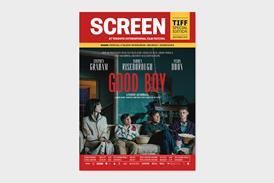


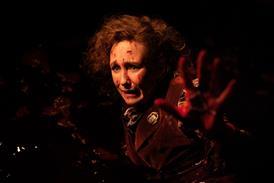
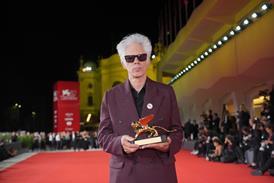
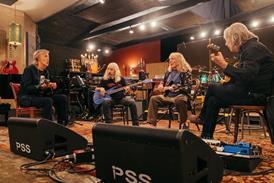
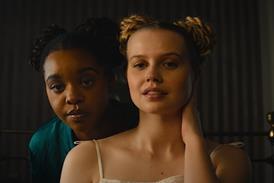
![[Clockwise from top left]: 'The Voice Of Hind Rajab', 'A House Of Dynamite', 'Jay Kelly', 'After The Hunt', 'The Smashing Machine'](https://d1nslcd7m2225b.cloudfront.net/Pictures/274x183/1/7/0/1459170_veniceawards_837515.jpg)



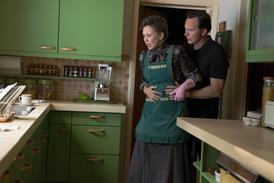
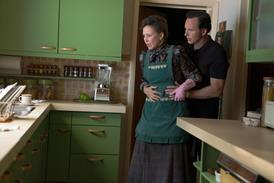
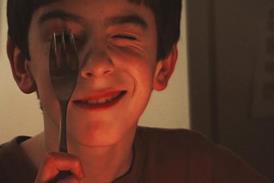


No comments yet